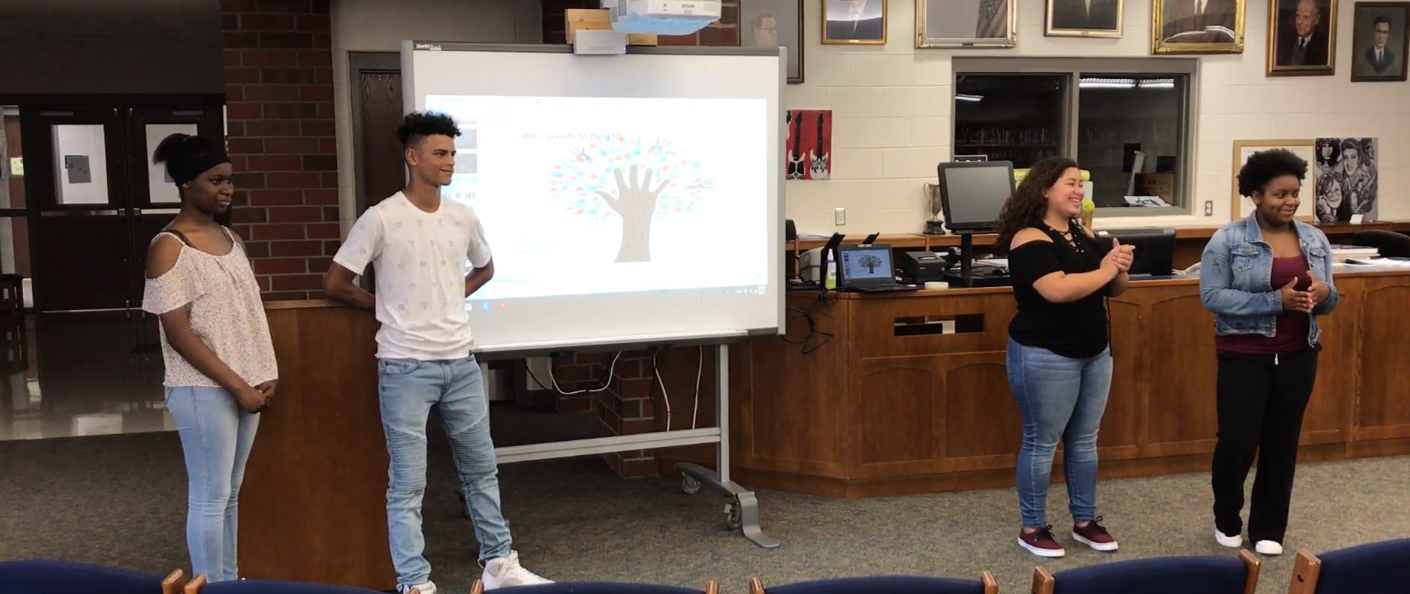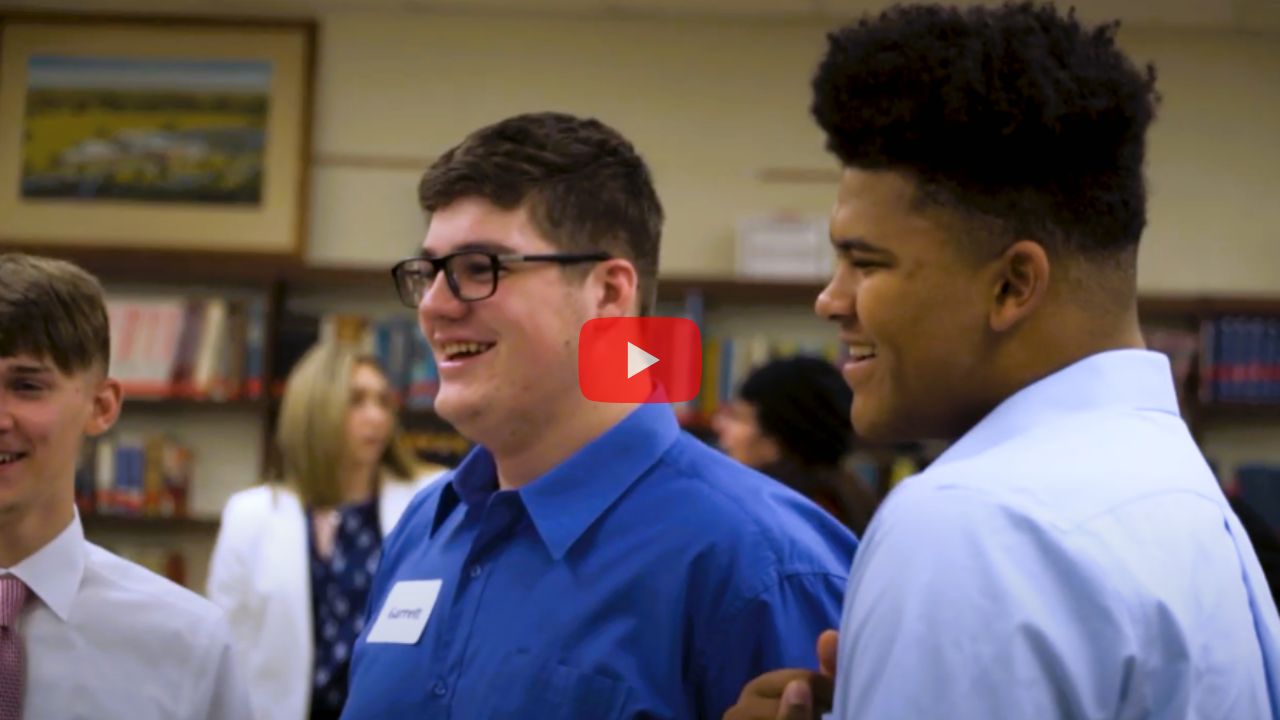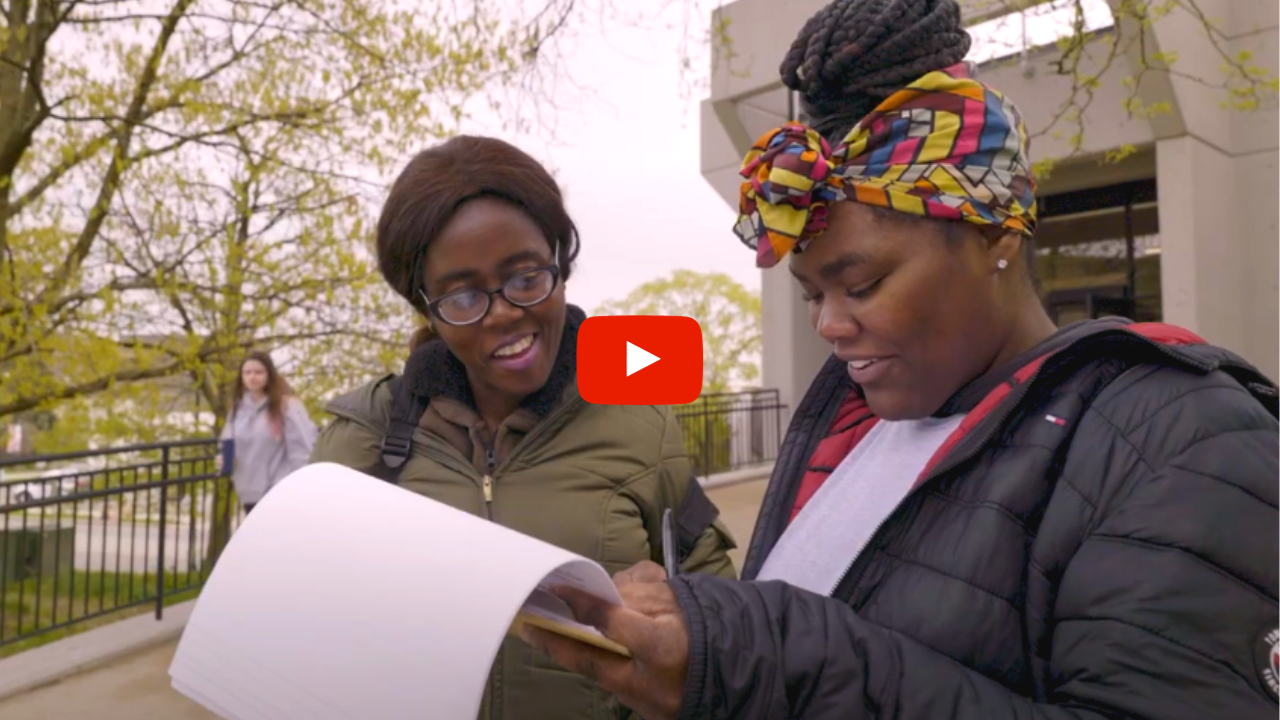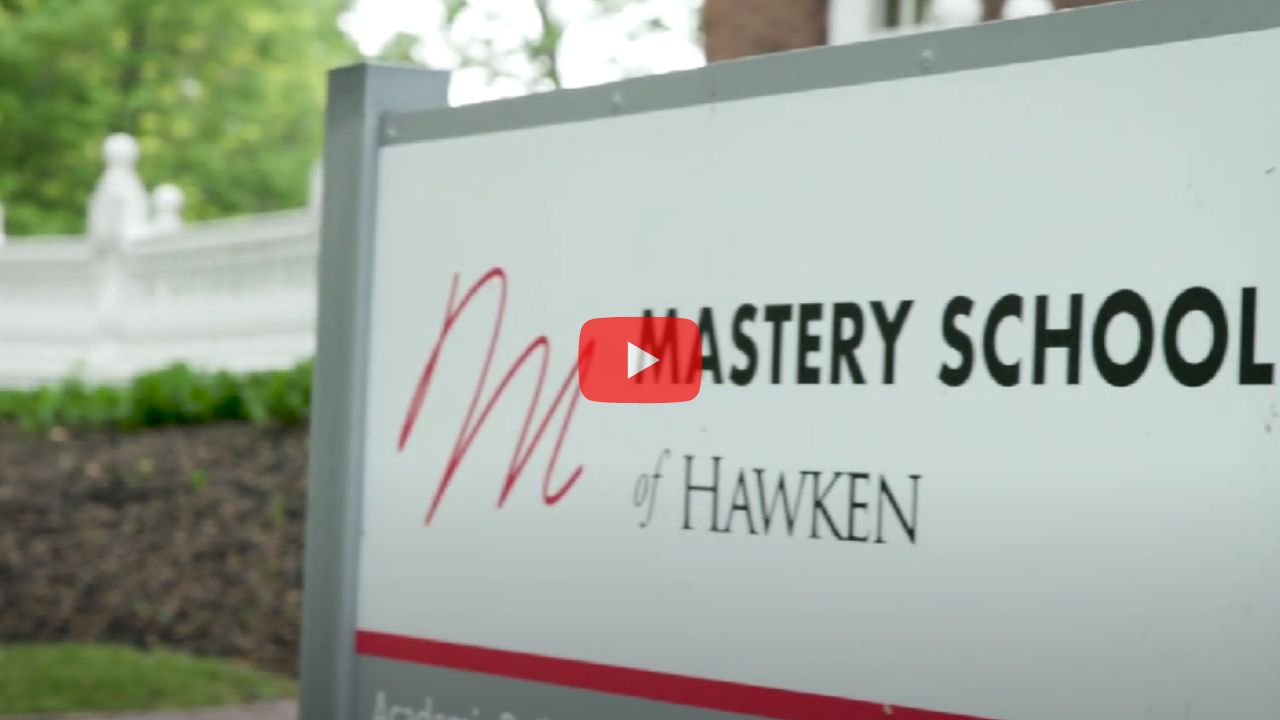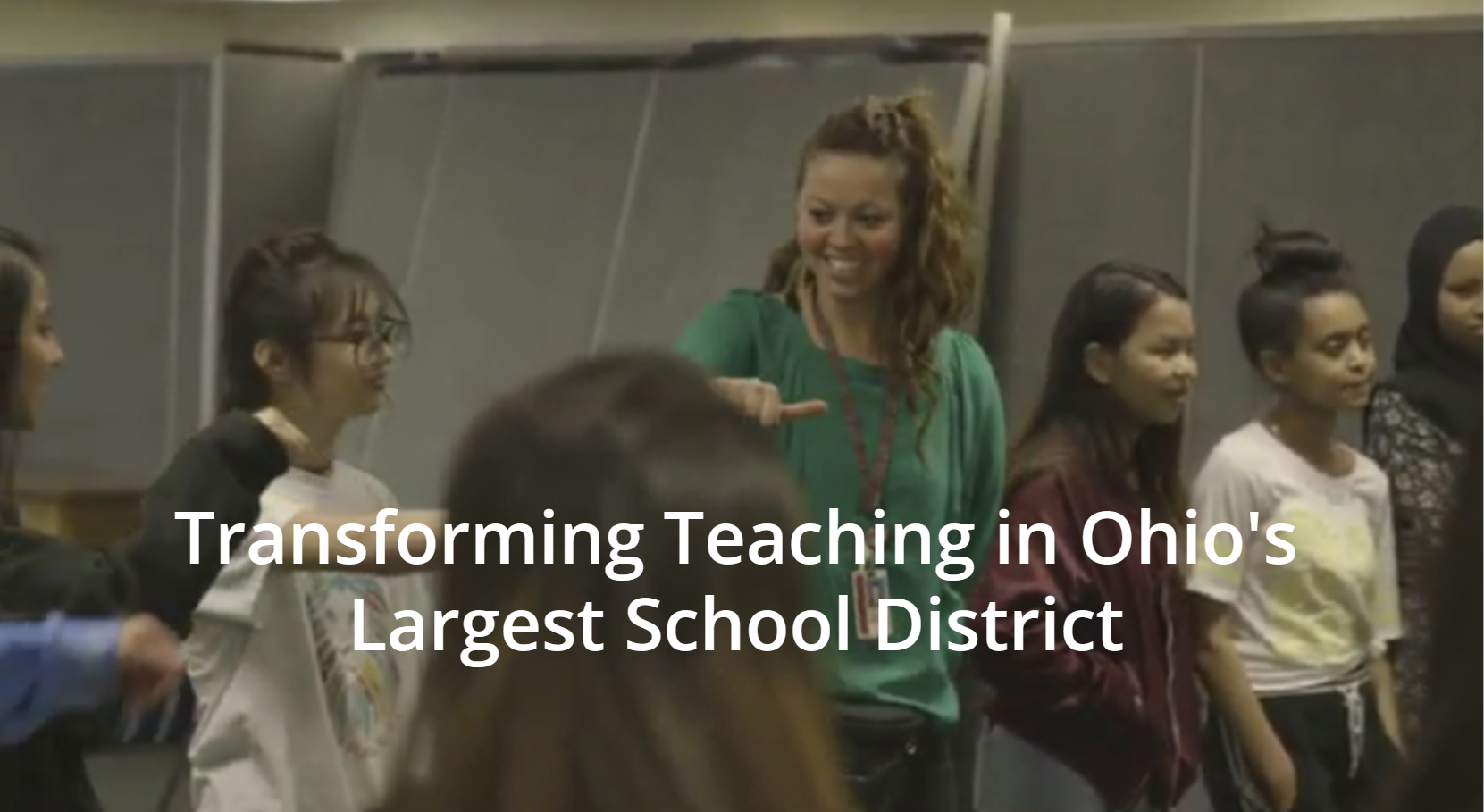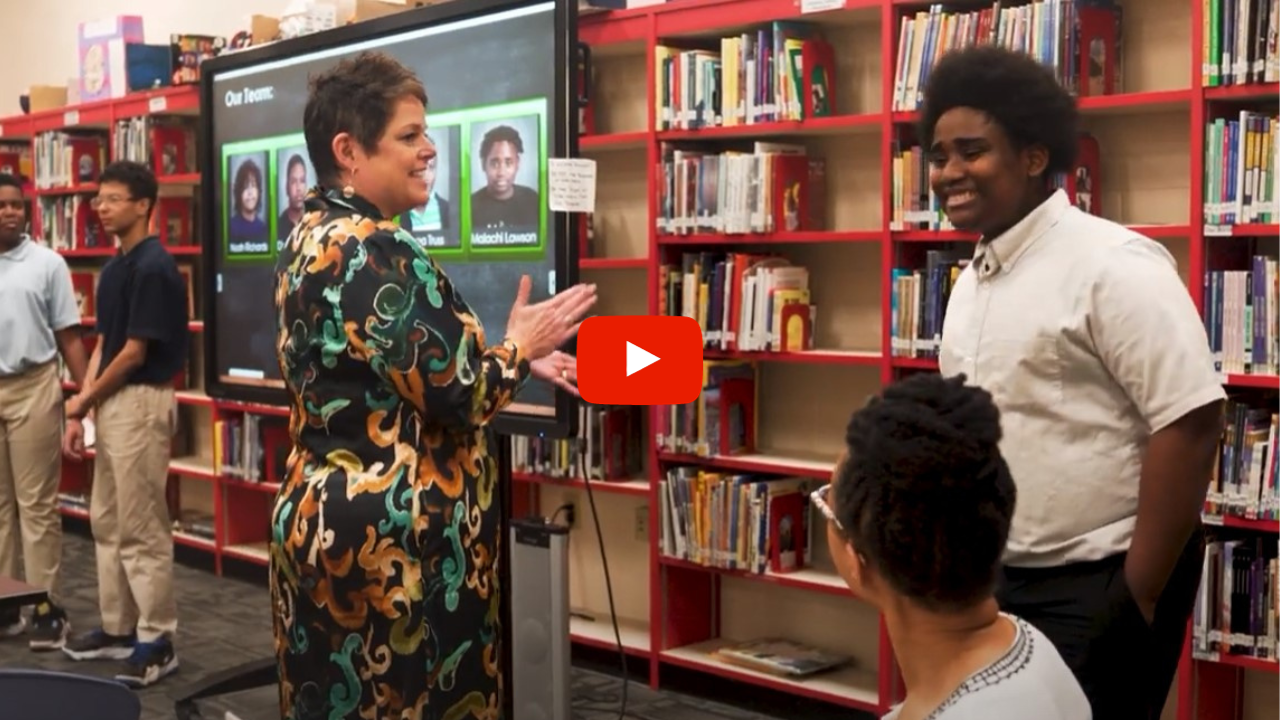In this episode, Doris speaks with Kesha Conway who has been piloting Korda Method across the Ashtabula Area City Schools District. They discuss a recent project in Lisa Raffa’s high school Government class at Lakeside High School, where students found their agency while identifying solutions to community problems.
Do School Better: A Podcast for People Who Want to Transform Education - Listen to more episodes here
Doris: Hello, Kesha.
Kesha: Hello, Doris. How are you doing?
Doris: I am doing great. And you and I have now really gotten to know each other. We’ve worked together for about two years now.
Kesha: Yeah. It’s been awesome.
Doris: It has been awesome. And so, you know, you came to the first pilot, Burton D. Morgan, which is a phenomenal foundation in Cleveland that really supports, and promotes and grows entrepreneurship education in Northeast Ohio, funded scholarships to our workshops for public school educators, and educators who are working with public school students. And you and Laura were from LEADERship Ashtabula County, applied for those scholarships, and you both came to the first workshop. And what I would love for you to do is tell a little bit about yourself and then tell the listeners, you know, what brought you to the workshop, and what has happened since, and why it has happened since.
Kesha: Yeah. It’s so exciting. So, a little bit about me, I practice law for a long time. I never really thought it was my thing. So, I found myself working at LEADERship Ashtabula County, running leadership programs, and I wanted to do things better than I had done before. I found your workshop, I came, my mind was blown away. I did my first pilot and I work with kids from Ashtabula County. There are seven public school districts and two private schools in the county, and I work with kids from all of those schools. And I did a leadership lab which was like entrepreneurship-based, and that was my first pilot. And then after that, one of the local school districts opened their doors to your methodology and to my enthusiasm, I guess, about it, and I did my second pilot within the four walls, so to speak, of that school, and that was last spring. And again, it was business-based. And then the first three weeks of this school year, I co-taught with a teacher in that same school district, Ashtabula Area City Schools. The high school is Lakeside.
Doris: Yeah. And in between, you came to the workshop a second time with this teacher.
Kesha: Yes.
Doris: But talk for a minute about what this did for the students that you were teaching and at the end of the day, this is why we do this. Given where you are and where you’re doing this, why does this matter for these students in this county, Ashtabula County? And this is in Ohio. And describe it a little bit because people from all over the world listen to this, and I think setting the stage a little is really important.
Kesha: Yeah. Ashtabula County is the largest in terms of land mass. It’s the largest county of 88 in Ohio, but it is one of the most rural, and it’s one of the most poor and one of the most unemployed. So, that’s kind of like a snapshot of the county. The schools, I think the largest high school graduates around 200 kids each year and about 60% of them don’t know what they’re going to do after they graduate, meaning like, they don’t have college plans. So this matters for students for so many different reasons, but it really matters particularly for the students in Ashtabula County where it’s economically disadvantaged right now in time and which kinda trickles into the schools. These students out here, they almost have like an inferiority complex because their schools have very little resources and they just don’t really think that anything, anything that’s going on, in and around them matters or is significant or is even worth fighting for. So, these kids, when they come out of their pilot have this new confidence that swagger to themselves and to what they are doing. That’s why it really matters.
So for example, the students that we were just working with, I was talking to one of them afterwards. And he’s a student that really never went to school, never went to class. And I asked him, you know, “How’s school going now?” And he said, “Well, now, I am in my other classes. I’m trying to get better grades and I have applied for a job for the first time in my life.” And I said, “Well, what made you want to get a job now in your junior year?” And he said, “Well, now, I know that I can do it.”
Doris: Yeah. And some of these kids were really good. They never ever been in any kind of situation like this. And that accomplishment, I mean, that’s pretty…that’s gotta have had something to do with some of that swagger.
Kesha: Yeah.
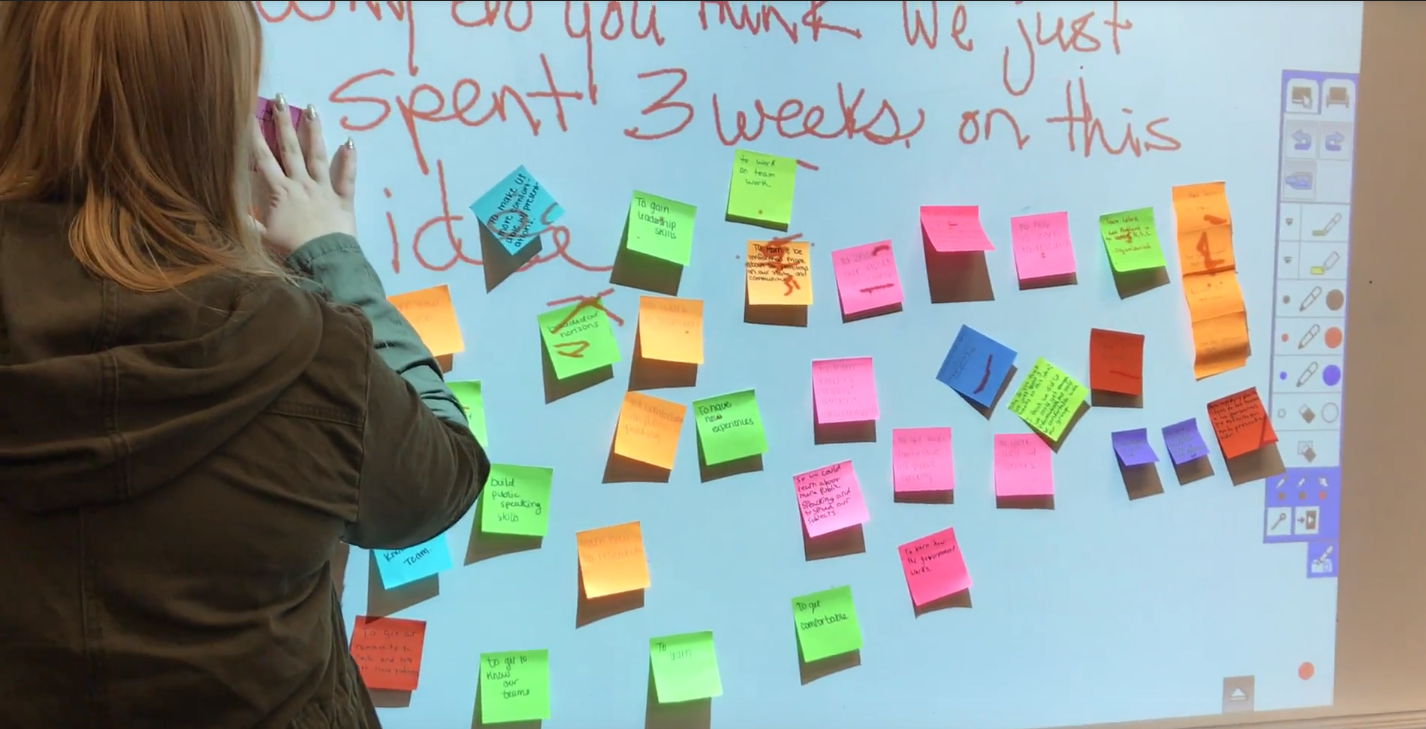
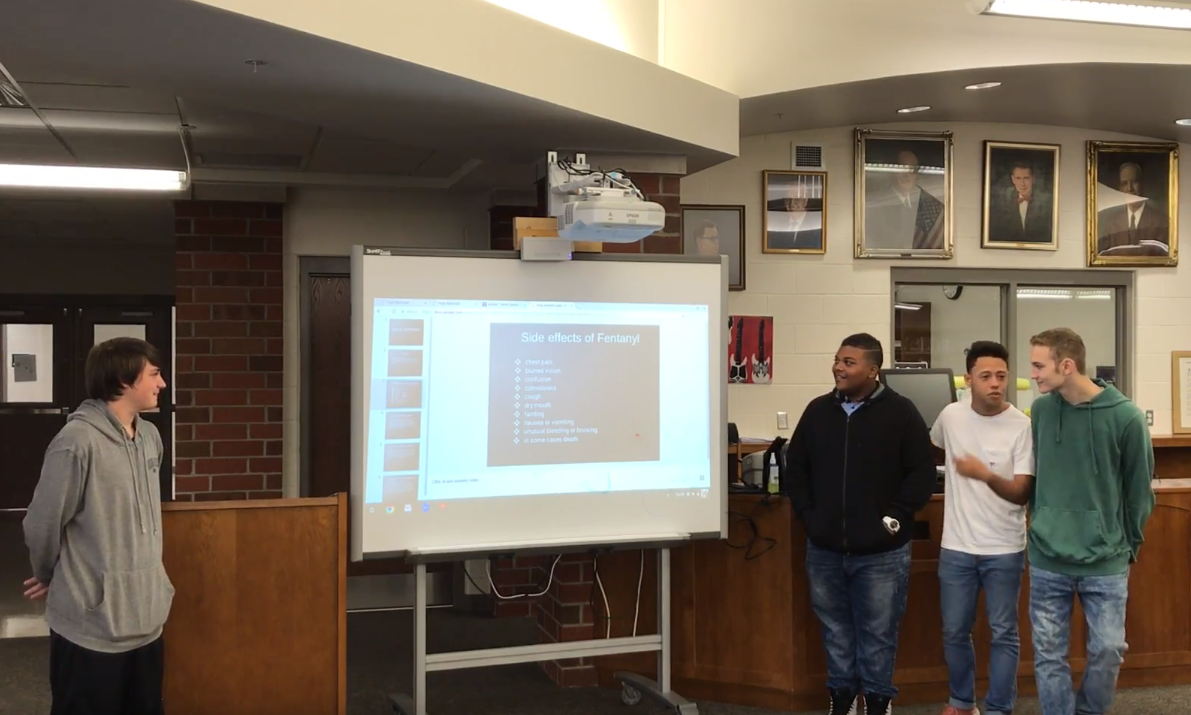
Doris: What I would really love to hear you talk about is your pilot that you did this year inside a high school government class with this teacher, Lisa, and she’s been teaching this government class for many years in this public school. And you worked with her as she piloted this in a project in her class. And I would love for you to talk about that class, the students, what they did, and the results that you saw.
Kesha: We set it up a little…very similar to how I’ve heard at least two other people in your podcast do their first pilot. In that, we did like a museum walk and the students chose, and there were, like, different local issues. Lisa was really passionate and her priority was she really wanted the kids to make connections between government and their daily lives. So, through that museum walk, the students chose an issue that mattered most to them. So, in the end…and there were like 30, 33 students, and homelessness was one of the topics that they presented on, mental health, the drug epidemic in the county, and the welfare system. Well, I’d love to share some excerpts from my co-teacher, Lisa Raffa. She has been a teacher in psychology and government in the last 20 years at Lakeside High School in Ashtabula.
Lisa: I really feel the challenge of this project is to get kids more engaged in their community and more involved in their community, and have a different feeling about their community with the twist and the learning twist of it being from a government standpoint. Now, we’re going to take the community of Ashtabula and we’re going to learn about it, and we’re going to learn about the government. And then it will extend on to the government of Ohio, and hopefully, what’s happened to some expressions of the national government. So, at all levels and we’ve incorporated all branches. And this is a different self-inquiry, you know. It’s in themselves and they are the investigators. And this is a different kind of questioning because you’re not questioning about content, you’re questioning about, you know, higher level thinking and higher level problems. And you’re trying to get a kid to do some self-inquiry because I’m used to I give them information, I spit it out, they absorb it, and I find out how well they absorbed it in the exact information I gave out. This is something that is a method that we’re just not used to, but the most important thing I feel like they got was that they can do it and they could do anything, and they’re feeling confident about themselves.
Doris: Yeah. So it’s an 11th grade, right?
Kesha: Yes.
Doris: It’s an 11th grade government class and her learning objectives were her wanting them to engage with and learn about local government. So, the idea was that they choose local problems they want to solve and then, you know, the way the solutions are, you know, in order to come up with a valid evidence-based, well-researched solution, you have to get into how the government impacts, the local government impacts the problem or the solution or…well, you can talk about this better than I can. I saw the presentations and I was really impressed. But I’d love for you to talk a little bit about that and also who these students are.
Kesha: Sure. So, the students…This was a class where you could tell the minute I walked in the room the first day, government was not a class that they cared about or school in general. The first week of class, there were so many absences. I was a little scared about how this would go. But by the end of it, no one was missing and everyone was staying after class to get their work done which was pretty awesome to see. What happened was after they started digging around in their respective issue, they found something that they cared about. For example, you know, the team that was working in and around homelessness, one of the girls shared with her team that her dad was homeless while she was growing up and he lived in a certain park, and they’re still a homeless population there. And it’s really close to school and, you know, there’s a stigma around being homeless. And once she opened up to her teammates, they just took off. In that same team, there was a student who was very defiant and he tried so hard to not care about anything. He was always taking bathroom breaks. He was always on his phone. He was, you know, just always, always being really combative with his teammates. And after she shared that, a few days later, he came into class. And I was checking in on that team just, you know, seeing how things are going and whatever, and he was the one that looked at me and he said, “Ms. Conway, we have a lot of work to do. Can you please go talk to another team?”
Doris: Wow, wow. That’s really something. I’ll tell you, I came…You and I talked along the way during this and I came to the presentations. And I was really blown away by the variety of problems they chose, and the really creative solutions, some of them came up. Some of those teams, in particular, had really innovative ideas and they all involved, in some form, local government.
Kesha: Yeah. Let’s hear from a student about her experience.
McKenna: My name is McKenna Grady and I’m a junior at Lakeside High School, and our topic was welfare. And while we were researching it, like, it was showing how the different branches and stuff relate to the welfare and how the money gets disbursed and everything. So like, I have a better understanding of it, rather than just, like, reading it out of the book. And I learned that welfare doesn’t necessarily just fall under one category. Like, usually when people think of welfare, they think of one program, but there’s actually, like, a lot of things that go into it. There’s food stamps and then, like, the TANF program which is, like, cash assistance. And, like, there’s just a whole bunch of stuff in Ohio. And after looking into different countries and stuff, it’s hard seeing how, like, their welfare systems are way different than ours. So kind of just based our solution off of that. And then with our local solution, it was kind of just like how we could get people to save money and worrying more about getting off of welfare, and getting out of poverty.
Kesha: So, this student, I mean, she really hit it home to me after the presentations and she kind of put those…my level of anxiety about, you know, them being able to understand and apply what they learned in this pilot to the particular test, the state test that they have to take. I mean, I remember the first day when Lisa and I were…I’m kinda queuing up there the whole pilot and she sat there with her hands, you know, across her chest, and her head kinda cock to one side just kind of fuming. You could just see, like, the blood, just her blood was boiling. She was mad. She was really mad and she thought that this whole thing was going to be a waste of time. She probably reacted like that for the first, I would say, like, the first few days, you know. And then she was making all the transitions that one can only hope for. By the end of the pilot, she told me…now, going through those three weeks, she said that she felt more prepared for that test because of all of her research and all of the things that she learned about the welfare system, and how it connects on the federal level, on the state level, and at the local level. And yeah, she felt more prepared for that test because of what we had just done in those last three weeks.
Doris: Yeah. Well, that’s pretty big and I’d like to hear what you think, and maybe have some specific stories or maybe you can tell in general. I felt watching those kids present and listening to what they are presenting, I felt hopefulness from them. Did you experience that in them during the course of the pilot?
Kesha: Yes, without a doubt. The first day I got in there, it was your typical…you know, everyone just got into their seats. They just kind of…they barely looked up. They just wanted to know what they had to do, they would do it, and then they wait for the bell to ring, and go. By the end and right before the presentations, that classroom was just alive, and they were working together and sharing ideas. And there were so many different kids in that class, like, so many of them didn’t know each other’s names, you know, etc, etc. And by the end of it, they found out that they had so much in common that they just assumed that they didn’t. And they had, like I said before, coming out of those presentations, they had the swagger that I don’t think that each and every one of them, like, knew they had.
Doris: Well, because they…I mean, I have my idea, but why do you think? Why do you think they had that?
Kesha: Because that was theirs. They did that. All of the work, all of the…I don’t know, anticipation, all of the unknowns they discovered, that was theirs. And that was the first time that they were allowed to have authority over something in their lives that really mattered.
Doris: Let alone inside school, inside an academic course.
Kesha: Heck yeah.
Doris: I also have to say and we can call this whatever we want. I’m not going to use any edu-jargon. I witness a moment in those presentations and there were a lot of them, a lot of kids, a lot of presentations, that I’ve never seen quite like that before, and it was really tender, and it will stay with me forever. But there was a student who clearly didn’t speak English not only as a first language, but barely spoke English. And his team was presenting, and they had given him one part of the presentation which was to read, just read a slide. And he was extremely nervous. His English was very…he had very little command of English. He was struggling mightily and another member of his team, a boy, walked over. So, there are four or five people on this team presenting and these boys were not standing next to each other. In fact, they weren’t standing on the same…they were standing on different sides of the screen, the large screen where the presentation was showing. And one student saw that he was struggling, and very, very gently moved over next to this boy to stand unobtrusively, quietly. He didn’t want to take the attention at all away from the boy who was presenting to basically stand very, very close to him so that he could, I assume, though I couldn’t hear it, whisper. And then it was hard to even tell because the boy was trying to do it without you being able to see. But I assume he was whispering to the boy who was reading or trying to read what the item was so that the boy could then say it. Is that what was happening?
Kesha: That was exactly what was happening and that’s what I was trying to say. But you said it way better about how there were a lot of students in this class that had never interacted with each other before and now they’re friends.
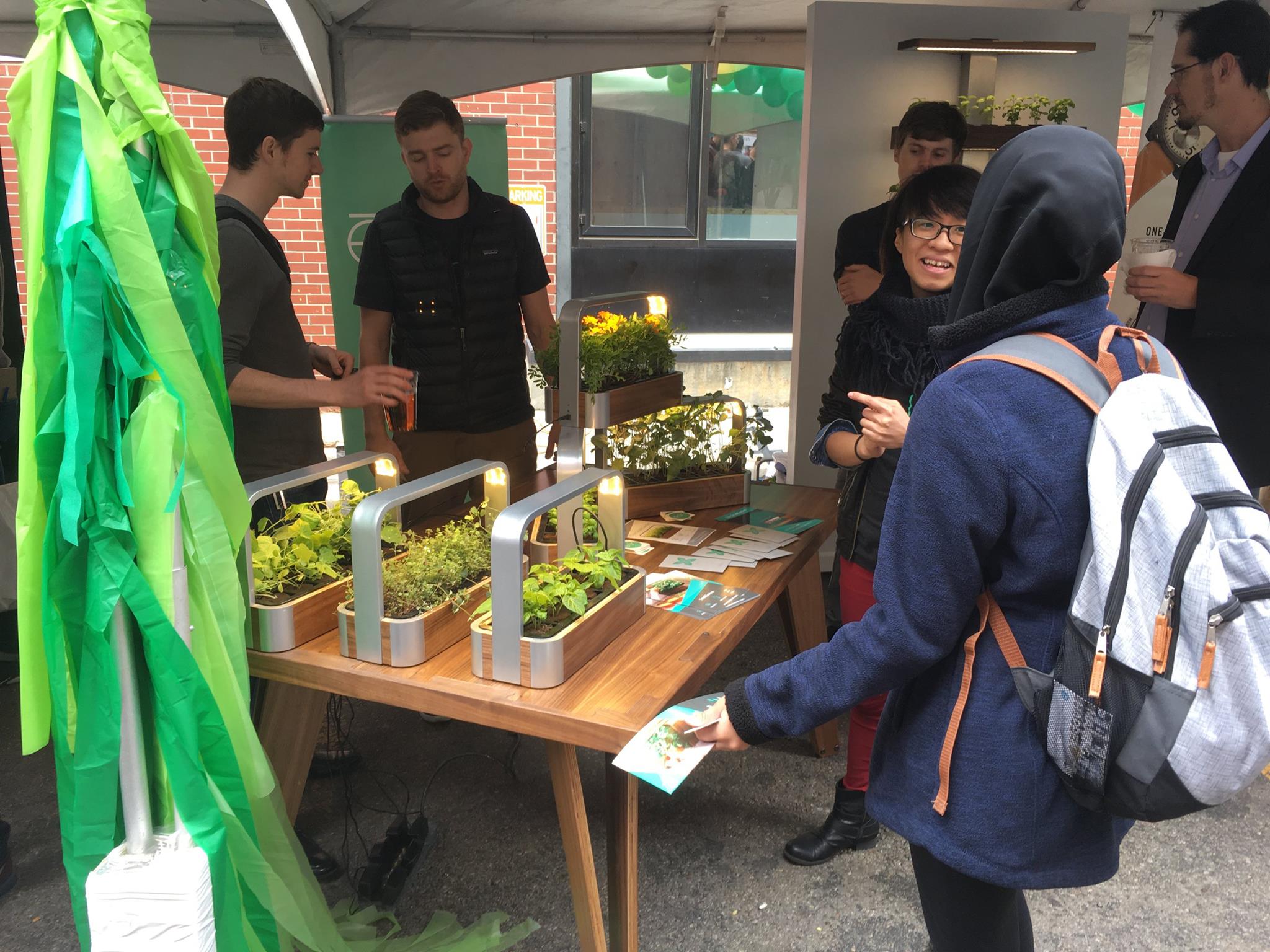
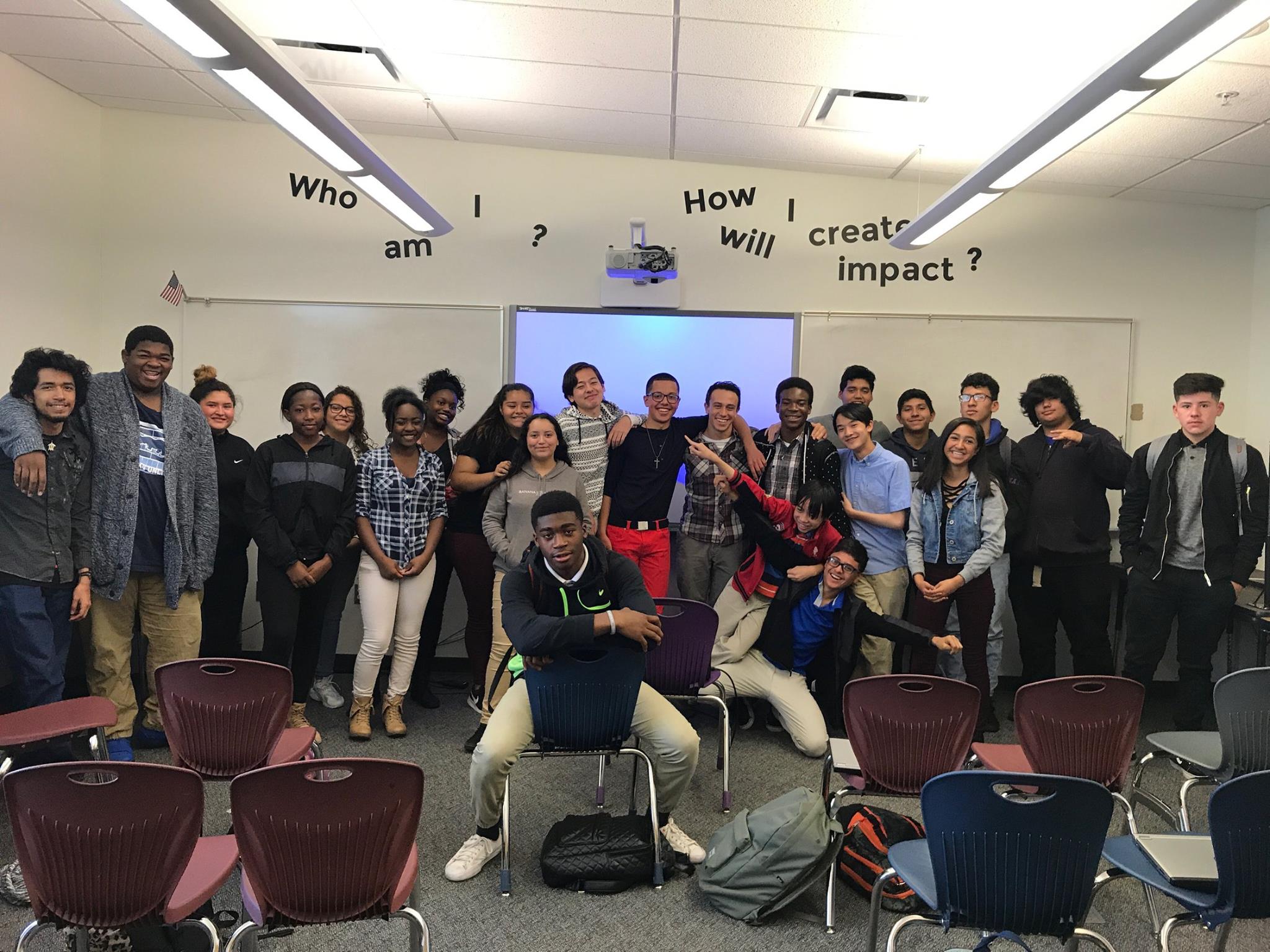
Doris: It’s really something. And we are now in this happy position because of all the good work that you’ve done in Ashtabula where we now have multiple educators from a couple of other schools, a middle school and a high school who are coming to workshop to design their pilots, and go back and pilot in their schools. So, it’s spreading in Ashtabula County.
Kesha: Yeah. So, there are nine high schools out here and after my first pilot…well, at the presentations, at my first pilot, there were several administrators from several different school districts in the room. Immediately after the presentations and, you know, after they were kind of grilling the students in all the right ways, they approached me and several of them said, “We need this for our students.” And that was just seeing the presentations. So, I was totally pumped. And fast forward to now, there are two school districts now that are working with you to spread this throughout their districts.
Doris: The reality is that the timing is really, really good for trying out a completely different way of teaching. There’s something that’s happened literally in the past few months. I think I spoke earlier of this as feeling like we’ve kinda past the tipping point where, literally, everybody who’s in education paying any attention at all. And I don’t mean just attention to the conversation, I mean attention to their students. Totally, without a doubt, with the world so vastly changed by technology and the classroom not, this stark contrast between how we do school in K12 and the rest of the world outside of school is undeniable. It doesn’t work and, you know, everybody in education in K12 has chosen kids as their life’s work. They’re not doing it for the money.
And I think we all know that this is not…we’re not preparing our students, we’re not helping them. And what you’re describing is you’re describing an area where there really are some very significant problems and it’s very well documented, and discussed lately. Very very slow economies and what feels like little opportunity and big problems, the opioid crisis, and depression, and suicide, and all these things. And we’re talking about a methodology that’s rooted in the idea that if you capture a person’s, let alone a student’s interest and imagination, everybody not only has the ability to learn, but they will love to learn. They just learn different things, and love different things, and are interested in different things. And the great thing about technology is you can set up a learning experience for a large group of people where everybody is learning and doing very different things in the same space.
Kesha: Yeah. This stuff is so important to students out here, so to speak, and students in general that…I mean it’s, like, my imperative right now. It’s the thing that just drives me. So, watch out, world. Here we come.
Doris: Great talking to you, Kesha, as always.
Kesha: You too, Doris. Thanks so much.
